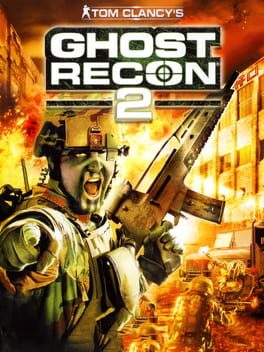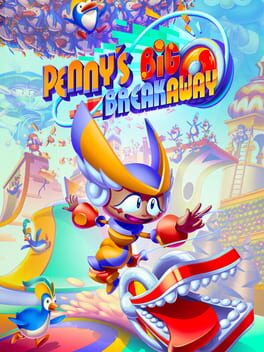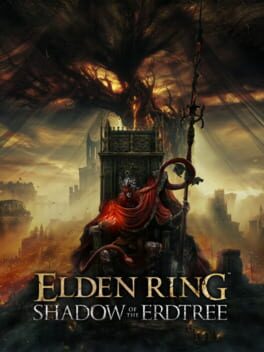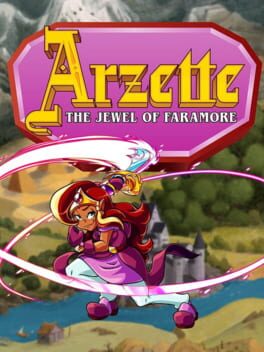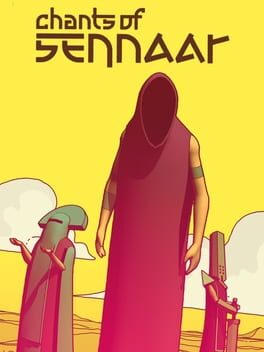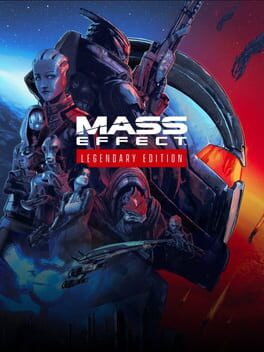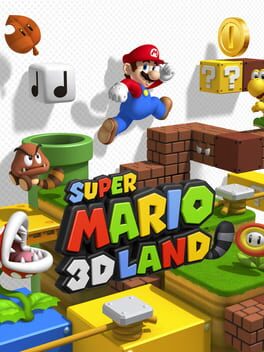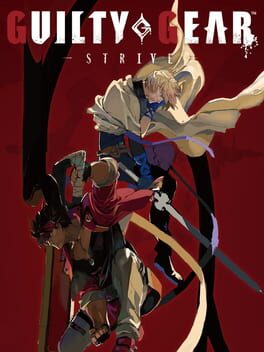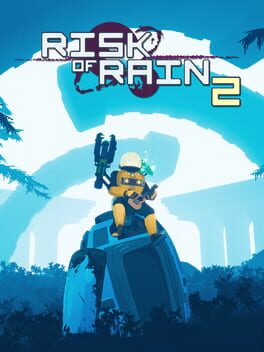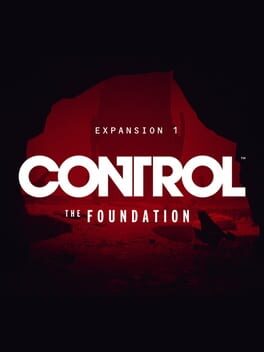Detectivefail
22007 Reviews liked by Detectivefail
[Modal's Memory Card - Pt. 5]
Probably one of the first proper shooters I played back in the day, as weird as that may sound. Once again, something that didn’t interest me past the first mission due to the weird controls. I remember my dad thinking he was the coolest ever getting me this T-rated game when I was still like 9, and no matter how little I ended up playing it, he still is the coolest ever.
As far as milsim tactical shooters go, it hasn’t aged amazingly but it’s still really enjoyable. I don’t have a lot of previous experience in the genre besides stuff like the MGS series and one night of Hell Let Loose with a few friends (with me being way more accustomed to more arcade-y military stuff like COD), but it felt pretty easy to get into. It doesn’t seem too often these days that we get single player shooters that are pretty slow-paced and lean on you to check your corners Counter-Strike style. Movement can definitely feel finicky and unreliable here and there (mostly in leaning) but it’s overall good enough to not inhibit that tactical sense. Cranking up the difficulty to Elite definitely makes for a tense and rewarding experience, even with its flaws. I’ve been pretty accustomed to playing shooters with KBM for years now, but once I got used to analog sticks again, it fit like an old shoe even with the weird accelerating sensitivity. Snipers are definitely my favorite here but they desperately need a “hold-breath/steady aim” feature while scoped, especially when the M14’s pre-scope zoom-in has no sway at all. Health can also feel extremely shoddy in how there’s no healing whatsoever. It definitely aids levels feeling tense as you slowly move your way through, especially on solo missions, but at what cost? Furthermore, you can lose health for very petty reasons, like getting sniped through the fog on the lower-visibility levels or just sliding down a too-steep cliff. Either way, it certainly does emphasize the fact that this game’s combat is more about patience than non-stop aggression.
The squad mechanics are partially why I was a bit standoffish from getting into this game, and even when sometimes they can be unreliable, they were kinda fun to fool around with. They can be unbelievably dumb and stand slackjawed in front of turrets dying, as well as kill each other with their own grenades when you order them to flick grenades somewhere, but in some circumstances you’ll be depending on them heavily, especially in the last level where visibility is low and they need to be pushing ahead. Even then, I think my favorite levels were the ones where you were on your own without a squad, not only because you get what I believe to be the best gun in the game during these missions, and because all the locales/weathers in these were A+, but the lone wolf vibes are immaculate. In general, the levels and settings didn’t have a large variety of color palettes and atmosphere, with basically being restricted to rural North Korea, but they made the most with the singular settings and still had some good variety. The campaign does this crazy unheard-of thing by actually getting better as the levels go on.
The story is extremely cut-and-dry and as much USMC propaganda as the gameplay around it, but still gives way to some pretty endearing and chuckleworthy quips by squadmates here and there. The fact that the game’s levels are a lot more concretely “missions”, where you’re literally given the checklist of objectives beforehand, actually makes it all feel a lot more well paced. The soundtrack is pretty good as well; It does take some time to get used to the old MIDI keyboard string hits, but this was years before Hans Zimmer and Lorne Balfe would go sicko mode on the MW2 soundtrack and up the ante for military FPS soundtracks forever, so I’m appreciative of the good stuff that’s here.
A T for Teen rating is still kind of wild with the game’s last mission featuring a dude shooting himself in the head.
________________________________________________________________________________________________________________________________
Modal's Memory Card is a series where I'll be revisiting PS2 games from my childhood and seeing how they hold up.
Probably one of the first proper shooters I played back in the day, as weird as that may sound. Once again, something that didn’t interest me past the first mission due to the weird controls. I remember my dad thinking he was the coolest ever getting me this T-rated game when I was still like 9, and no matter how little I ended up playing it, he still is the coolest ever.
As far as milsim tactical shooters go, it hasn’t aged amazingly but it’s still really enjoyable. I don’t have a lot of previous experience in the genre besides stuff like the MGS series and one night of Hell Let Loose with a few friends (with me being way more accustomed to more arcade-y military stuff like COD), but it felt pretty easy to get into. It doesn’t seem too often these days that we get single player shooters that are pretty slow-paced and lean on you to check your corners Counter-Strike style. Movement can definitely feel finicky and unreliable here and there (mostly in leaning) but it’s overall good enough to not inhibit that tactical sense. Cranking up the difficulty to Elite definitely makes for a tense and rewarding experience, even with its flaws. I’ve been pretty accustomed to playing shooters with KBM for years now, but once I got used to analog sticks again, it fit like an old shoe even with the weird accelerating sensitivity. Snipers are definitely my favorite here but they desperately need a “hold-breath/steady aim” feature while scoped, especially when the M14’s pre-scope zoom-in has no sway at all. Health can also feel extremely shoddy in how there’s no healing whatsoever. It definitely aids levels feeling tense as you slowly move your way through, especially on solo missions, but at what cost? Furthermore, you can lose health for very petty reasons, like getting sniped through the fog on the lower-visibility levels or just sliding down a too-steep cliff. Either way, it certainly does emphasize the fact that this game’s combat is more about patience than non-stop aggression.
The squad mechanics are partially why I was a bit standoffish from getting into this game, and even when sometimes they can be unreliable, they were kinda fun to fool around with. They can be unbelievably dumb and stand slackjawed in front of turrets dying, as well as kill each other with their own grenades when you order them to flick grenades somewhere, but in some circumstances you’ll be depending on them heavily, especially in the last level where visibility is low and they need to be pushing ahead. Even then, I think my favorite levels were the ones where you were on your own without a squad, not only because you get what I believe to be the best gun in the game during these missions, and because all the locales/weathers in these were A+, but the lone wolf vibes are immaculate. In general, the levels and settings didn’t have a large variety of color palettes and atmosphere, with basically being restricted to rural North Korea, but they made the most with the singular settings and still had some good variety. The campaign does this crazy unheard-of thing by actually getting better as the levels go on.
The story is extremely cut-and-dry and as much USMC propaganda as the gameplay around it, but still gives way to some pretty endearing and chuckleworthy quips by squadmates here and there. The fact that the game’s levels are a lot more concretely “missions”, where you’re literally given the checklist of objectives beforehand, actually makes it all feel a lot more well paced. The soundtrack is pretty good as well; It does take some time to get used to the old MIDI keyboard string hits, but this was years before Hans Zimmer and Lorne Balfe would go sicko mode on the MW2 soundtrack and up the ante for military FPS soundtracks forever, so I’m appreciative of the good stuff that’s here.
A T for Teen rating is still kind of wild with the game’s last mission featuring a dude shooting himself in the head.
________________________________________________________________________________________________________________________________
Modal's Memory Card is a series where I'll be revisiting PS2 games from my childhood and seeing how they hold up.
Seems every months near abouts there is a gaming controversy I am on the opposite side of as the majority. Now I am gonna try not to be mean to fine people who have down voted elden ring to oblivion. But I have to ask, What were you expecting? Seriously, what reason did anyone have to think we were gonna get anything other than what we got from, from software?
A lot of people don’t realize or remember that this event with people whining about the difficulty has happened before, even within the context of Elden ring itself. There was an early on warning to players, level up your vigor. This game is not dark souls 3, you can blast through the game with just leveling up your damage. The pinnacle of complaints came from the point between act 2 and act 3 approximately the point where you reach the fire giant.
The game rapidly hikes up in terms of difficulty when you reach the end game portion. For some, it made them upset because they wanted to play the game they had been playing in the past with bloodborne or dark souls 1 or 3. But you simply could not do this in elden ring. The bosses move like lightning and hit like freight trains, they are so much faster and brutal than any of the bosses from soft has put in their games to date. To compensate for this, you are allowed the opportunity to become armed to teeth with a massive array of combat tools. The spells have never been stronger, never been more varied, never been better blended into the gameplay. Elden ring has done a better job than any of the souls games before it of implementing magic. You could do a kamehameha that can one shot a lot of bosses if you get the setup right. On top of that, the game has a gigantic amount of disparite systems that support a wide way to handle combat situations. The point is to say, your options for killing enemies were varied.
Now that was a long winded way of getting around to my point. What’s changed between act 2 and 3 of Elden ring and act 3 and the dlc or Elden ring?
I think part of difference is Elden ring warmed you up a bit before spiking up the sauce. For most people playing the dlc. They have been cold for probably a couple years before picking up the dlc. So the extremely brutal gameplay was probably a bit overwhelming. On top of that this, the dlc has a unique interdlc level system. Now people don’t like this system very much. I personally think it’s great because it encourages exploration in between difficult boss fights. Elden ring’s core value proposition went something like that, because it’s not linear you can try a few different things to help with progression instead of grinding the boss till you win.
In addition to the scadutree fragments there are many new weapons, spirit ashes, etc.
Stepping back to the difficulty as a point of contention. I have a different take on the benefits of the game being so difficult. T
From my perspective it helps you fixate on the environment. Because you spend so much time dying and running through the same areas over and over, you get to notice the highly detailed architecture or bizzare mysteries surrounding the ecosystem and how it might work. Such as why are there scorpion spider things here? Why are they also by that river I was just at as well.
That’s a style of story telling I appreciate, it’s subtle, it’s something that could only be done on the gaming medium, and it rewards thoughtfulness.
The difficulty at least from my perspective forced me keep evolving my strategy and the way I played the game as I went through the DLC. Ending in me developing a very complicated and obtuse strategy to clear the final boss(took me 3 days).
For those that review bombed this game. Maybe don’t buy from soft games in future, you are not built for them and they aren’t built for you. Go back to Ubisoft and play one of those shitty games that tells you everything you need to do in explicit detail, scrub!
A lot of people don’t realize or remember that this event with people whining about the difficulty has happened before, even within the context of Elden ring itself. There was an early on warning to players, level up your vigor. This game is not dark souls 3, you can blast through the game with just leveling up your damage. The pinnacle of complaints came from the point between act 2 and act 3 approximately the point where you reach the fire giant.
The game rapidly hikes up in terms of difficulty when you reach the end game portion. For some, it made them upset because they wanted to play the game they had been playing in the past with bloodborne or dark souls 1 or 3. But you simply could not do this in elden ring. The bosses move like lightning and hit like freight trains, they are so much faster and brutal than any of the bosses from soft has put in their games to date. To compensate for this, you are allowed the opportunity to become armed to teeth with a massive array of combat tools. The spells have never been stronger, never been more varied, never been better blended into the gameplay. Elden ring has done a better job than any of the souls games before it of implementing magic. You could do a kamehameha that can one shot a lot of bosses if you get the setup right. On top of that, the game has a gigantic amount of disparite systems that support a wide way to handle combat situations. The point is to say, your options for killing enemies were varied.
Now that was a long winded way of getting around to my point. What’s changed between act 2 and 3 of Elden ring and act 3 and the dlc or Elden ring?
I think part of difference is Elden ring warmed you up a bit before spiking up the sauce. For most people playing the dlc. They have been cold for probably a couple years before picking up the dlc. So the extremely brutal gameplay was probably a bit overwhelming. On top of that this, the dlc has a unique interdlc level system. Now people don’t like this system very much. I personally think it’s great because it encourages exploration in between difficult boss fights. Elden ring’s core value proposition went something like that, because it’s not linear you can try a few different things to help with progression instead of grinding the boss till you win.
In addition to the scadutree fragments there are many new weapons, spirit ashes, etc.
Stepping back to the difficulty as a point of contention. I have a different take on the benefits of the game being so difficult. T
From my perspective it helps you fixate on the environment. Because you spend so much time dying and running through the same areas over and over, you get to notice the highly detailed architecture or bizzare mysteries surrounding the ecosystem and how it might work. Such as why are there scorpion spider things here? Why are they also by that river I was just at as well.
That’s a style of story telling I appreciate, it’s subtle, it’s something that could only be done on the gaming medium, and it rewards thoughtfulness.
The difficulty at least from my perspective forced me keep evolving my strategy and the way I played the game as I went through the DLC. Ending in me developing a very complicated and obtuse strategy to clear the final boss(took me 3 days).
For those that review bombed this game. Maybe don’t buy from soft games in future, you are not built for them and they aren’t built for you. Go back to Ubisoft and play one of those shitty games that tells you everything you need to do in explicit detail, scrub!
Alan Wake II
2023
Finished this a couple weeks ago. It was an awe inspiring triumph of the artform. I have many great things to say about this wonderful game.
Before writing this review I played 2 other games from Remedy's catalog: Alan Wake 1 and Max Payne. I played them because I wanted to gain a bit of perspective on how far Remedy has come. Max Payne's story is told very bare bones style through still frames and narration in a film noir style, Alan Wake 1 is told through a first person narration in the style of a mystery novel through mostly cutscenes. Alan Wake 2 does narration similarly but it becomes a less solipsistic experience with the introduction of a second main character. The dual main characters of Saga Anderson and Alan Wake are an interesting pair to bounce back and forth from. For me it highlights how similar their 2 professions can be, detective and writer. Art and science are often thought to be distinctive things but I have found they actually use a very analogous methodolgy. After all what is the difference between finding a clue or finding inspiration from a story beat? Both come from a place of searching, whether one searches the inside of ones head or the objective world, it is a combination of combining the internal and external world that helps a scientist or an artist solve their respective problems.
In the case of Saga, much of the exposition of the story is done through her Mind place. An internal board of connections used for the purpose of organizing real world information relevant to the case that is being solved. Alan Wake on the other hand has a mind place that is dedicated to writing a story to help him escape the dream world he is stuck in.
I find a side effect of the mind place is that the story becomes easier to follow. I am reminded of FF16's active lore system, which was supposed to help user's follow the story, unfortuantely for me, it made me realize how much needless lore Square stuck in FF16 that was not very interesting. Everything is interesting in Alan Wake 2, there is an undercurrent of understanding and creating psychology, it is, from my standpoint underexplored territory in gaming narratives.
Now I feel a desire to address the sweet baby controversy. In quick summary for those who don't know, there is an attempt at a Gamergate 2.0 by gaming communities such as Neogaf to tip people off to a consulting company called sweet baby incorporated. SBI is basically a consultancy that is hired out to look over gaming narratives in from the lens of critical race theory and feminism. It is no surprise that gamers, ever the insecure and perpetually paranoid bunch, are so easily tricked by an election year psyop. I bring this up because Alan Wake 2 had some consultation done by Sweet baby inc. Sam Lake has said that this did not impact the decision to write Saga into the game and she was there before they came on board. The topic of race is actually nearly never brought up and feminism is touched on indirectly. I bring this up because some people might be inclined to boycott this game because of sweet baby's involvement but I can tell you, this is a very tasteful and not politically heavy handed narrative. It's savvy, touches on the topics it needs to touch on and does not preach to person playing it. Alan Wake 2 is more about the creative process and how a creative's intentions when crafting can have an impact on the real world. Any political ideas it may or may not espouse are on the level of the subliminal.
Now that this tangent is out of the way. I will get back to addressing the gameplay. It's survival horror for the most part, you have limited ammo and healing items and the stressors of the environment are fairly constnatly upon you. The shooting is nice and the camera is responsive. The game looks great on the ps5, an environment like the pacific northwest is a great backdrop for a story about creativity and nightmares.
In conclusion Saga's last mind palace segment really stuck with me, felt like an internalized therapy session. Live troubleshooting of insecurity, trauma and imposter syndrome. Similar to how Control addressed feelings of existential euphoria, Alan Wake 2 addresses the restructuring of one's mind and personality to overcome obstacles. It is beautiful art that I hope people don't miss out on for political reasons.
Before writing this review I played 2 other games from Remedy's catalog: Alan Wake 1 and Max Payne. I played them because I wanted to gain a bit of perspective on how far Remedy has come. Max Payne's story is told very bare bones style through still frames and narration in a film noir style, Alan Wake 1 is told through a first person narration in the style of a mystery novel through mostly cutscenes. Alan Wake 2 does narration similarly but it becomes a less solipsistic experience with the introduction of a second main character. The dual main characters of Saga Anderson and Alan Wake are an interesting pair to bounce back and forth from. For me it highlights how similar their 2 professions can be, detective and writer. Art and science are often thought to be distinctive things but I have found they actually use a very analogous methodolgy. After all what is the difference between finding a clue or finding inspiration from a story beat? Both come from a place of searching, whether one searches the inside of ones head or the objective world, it is a combination of combining the internal and external world that helps a scientist or an artist solve their respective problems.
In the case of Saga, much of the exposition of the story is done through her Mind place. An internal board of connections used for the purpose of organizing real world information relevant to the case that is being solved. Alan Wake on the other hand has a mind place that is dedicated to writing a story to help him escape the dream world he is stuck in.
I find a side effect of the mind place is that the story becomes easier to follow. I am reminded of FF16's active lore system, which was supposed to help user's follow the story, unfortuantely for me, it made me realize how much needless lore Square stuck in FF16 that was not very interesting. Everything is interesting in Alan Wake 2, there is an undercurrent of understanding and creating psychology, it is, from my standpoint underexplored territory in gaming narratives.
Now I feel a desire to address the sweet baby controversy. In quick summary for those who don't know, there is an attempt at a Gamergate 2.0 by gaming communities such as Neogaf to tip people off to a consulting company called sweet baby incorporated. SBI is basically a consultancy that is hired out to look over gaming narratives in from the lens of critical race theory and feminism. It is no surprise that gamers, ever the insecure and perpetually paranoid bunch, are so easily tricked by an election year psyop. I bring this up because Alan Wake 2 had some consultation done by Sweet baby inc. Sam Lake has said that this did not impact the decision to write Saga into the game and she was there before they came on board. The topic of race is actually nearly never brought up and feminism is touched on indirectly. I bring this up because some people might be inclined to boycott this game because of sweet baby's involvement but I can tell you, this is a very tasteful and not politically heavy handed narrative. It's savvy, touches on the topics it needs to touch on and does not preach to person playing it. Alan Wake 2 is more about the creative process and how a creative's intentions when crafting can have an impact on the real world. Any political ideas it may or may not espouse are on the level of the subliminal.
Now that this tangent is out of the way. I will get back to addressing the gameplay. It's survival horror for the most part, you have limited ammo and healing items and the stressors of the environment are fairly constnatly upon you. The shooting is nice and the camera is responsive. The game looks great on the ps5, an environment like the pacific northwest is a great backdrop for a story about creativity and nightmares.
In conclusion Saga's last mind palace segment really stuck with me, felt like an internalized therapy session. Live troubleshooting of insecurity, trauma and imposter syndrome. Similar to how Control addressed feelings of existential euphoria, Alan Wake 2 addresses the restructuring of one's mind and personality to overcome obstacles. It is beautiful art that I hope people don't miss out on for political reasons.
Silent Hill 2
2001
Just finished this for the first time last night. People say it's one of the greatest of all time. I think they are right. This is one of the absolute iconic classics of the survival horror genre and one of the best ps2 games.
Silent hill 2 improves upon the foundation set by the first game in nearly every single way possible. While I found that the first game's main issue was it's pacing after the school and hospital. Silent hill 2 has similar disjointed dream like pacing after it's first 2 dungeons but it strucks them with essential standout moments that all weave together to tell a story about a first person experience with abuse, trauma, and depression. While horror in the western world often focuses on being a stimulating experience with it's jumpscares and high impact horror movie trailer sound effects. Silent hill 2 is slower, thicker with atmosphere, thicker with anticipation and drawing out emotions. You can liken it visually to the glaucomic experience of depression. Shadow and darkness are to silent hill 2 what fog is to silent hill 1. While there is still fog in silent hill 2, it's lighting effects are far more noticeable visually to me. 70-80% of the screen is stuck in darkness, the room usually only lit by James' flashlight. What is visible in a scene is usually the grey or brown desaturated grimy, wet, dillapitated environments James constantly finds himself in.
Gameplay wise, it's puzzles and fighting monsters. Typical fare for survival horror. It's actually remarkable how stiff it is with it's tank controls, even moreso than Resident evil. I don't think this is a drawback at all. The absence of spectacle in terms of movement and action keep attention laser focused on the environment and atmosphere. What an atmosphere it is! In addition to the visuals I talked about earlier, is an array of horrifying chest tightening metallic clanging noises always droning onward throughout the halls and pits you find yourself in. The sound director pretty much figured out the most anxiety inducing sounds you could play at any time and really gives it to ya. Then when there are parts with dialouge, the most heavenly drum and bass sampled pads you ever heard in your life. The yang of high impact noises and the yin of the ambient mellow synths.
When it comes to story there isn't much I can say that has not been said already, there is a big twist ending but you almost certainty know that by now lol. I will say that even though I knew the twist, every moment that leads up to it and the clues given to what might be going on, they all hit so hard. This is a situation any person could find themselves in, the motivations and the way things got to be the way they are in the story are all so real feeling. Silent hill 2 conveys a feeling of hell that can last years and years in your life in an experience that lasts around 10-15 hours. Even though it is 23 years old, it still feels so dense and massive despite the constraints of the technology at the time.
Silent hill 2 improves upon the foundation set by the first game in nearly every single way possible. While I found that the first game's main issue was it's pacing after the school and hospital. Silent hill 2 has similar disjointed dream like pacing after it's first 2 dungeons but it strucks them with essential standout moments that all weave together to tell a story about a first person experience with abuse, trauma, and depression. While horror in the western world often focuses on being a stimulating experience with it's jumpscares and high impact horror movie trailer sound effects. Silent hill 2 is slower, thicker with atmosphere, thicker with anticipation and drawing out emotions. You can liken it visually to the glaucomic experience of depression. Shadow and darkness are to silent hill 2 what fog is to silent hill 1. While there is still fog in silent hill 2, it's lighting effects are far more noticeable visually to me. 70-80% of the screen is stuck in darkness, the room usually only lit by James' flashlight. What is visible in a scene is usually the grey or brown desaturated grimy, wet, dillapitated environments James constantly finds himself in.
Gameplay wise, it's puzzles and fighting monsters. Typical fare for survival horror. It's actually remarkable how stiff it is with it's tank controls, even moreso than Resident evil. I don't think this is a drawback at all. The absence of spectacle in terms of movement and action keep attention laser focused on the environment and atmosphere. What an atmosphere it is! In addition to the visuals I talked about earlier, is an array of horrifying chest tightening metallic clanging noises always droning onward throughout the halls and pits you find yourself in. The sound director pretty much figured out the most anxiety inducing sounds you could play at any time and really gives it to ya. Then when there are parts with dialouge, the most heavenly drum and bass sampled pads you ever heard in your life. The yang of high impact noises and the yin of the ambient mellow synths.
When it comes to story there isn't much I can say that has not been said already, there is a big twist ending but you almost certainty know that by now lol. I will say that even though I knew the twist, every moment that leads up to it and the clues given to what might be going on, they all hit so hard. This is a situation any person could find themselves in, the motivations and the way things got to be the way they are in the story are all so real feeling. Silent hill 2 conveys a feeling of hell that can last years and years in your life in an experience that lasts around 10-15 hours. Even though it is 23 years old, it still feels so dense and massive despite the constraints of the technology at the time.
What easily could be just a shitpost YouTube Poop reference game ends up being an affectionate parody of the CD-i Zeldas that manages to emulate the look and atmosphere quite well. It's perhaps a little too faithful to those games as progression can be rather obtuse at times, mainly having to find the fly for Vinny Vinesauce frog, but I did still manage to beat the game fine without using a guide or anything and I got 75% completion. Combat also isn't the most engaging intially, though you do get some neat upgrades past the midway of the game. Quality parodies tend to have some love for what they're lampooning and Arzette is continued proof of that.
Chants of Sennaar
2023
I really really wanted to like this title but after quite enjoying the first chapter, the stealth sections and slight tediousness in Chapter 2 just sucked all the fun out of it for me.
I still highly recommend this title as it is very unique and the experience of slowly learning the language of the world is quite enjoyable. I just don't have the patience to stick thru with it as puzzle games aren't my forte.
I still highly recommend this title as it is very unique and the experience of slowly learning the language of the world is quite enjoyable. I just don't have the patience to stick thru with it as puzzle games aren't my forte.
Final Fantasy XVI
2023
This review contains spoilers
It took me a year to come back and finish this absolute masterpiece of a game.
There is so much I want to say about this game. I played the demo back when it was first available for download and that shit sat me down and showed me why this game was worth playing. The ending of the demo gave me fucking chills as ben star gives some of the most impressive voice work I've heard in gaming. The raw emotion and presentation of the demo alone made me feel something I haven't felt in awhile. Then the game came out and it didn't disappoint. With its amazing world building and character I was strapped in for the ride of my life. I felt myself being dragged into this world as I played. The eikon fight made me feel like a kid again as I watch this giant ass creatures duke it out. It amazing. The music to no surpise was fucking awesome. This wonderful experience of a game ended with quite easily one of the best fucking final boss fight ever. Ending had me crying 3 times and left me pondering it for the next 3 weeks. Truly an amazing game do yourself a favor and play through this game. Thank you.
There is so much I want to say about this game. I played the demo back when it was first available for download and that shit sat me down and showed me why this game was worth playing. The ending of the demo gave me fucking chills as ben star gives some of the most impressive voice work I've heard in gaming. The raw emotion and presentation of the demo alone made me feel something I haven't felt in awhile. Then the game came out and it didn't disappoint. With its amazing world building and character I was strapped in for the ride of my life. I felt myself being dragged into this world as I played. The eikon fight made me feel like a kid again as I watch this giant ass creatures duke it out. It amazing. The music to no surpise was fucking awesome. This wonderful experience of a game ended with quite easily one of the best fucking final boss fight ever. Ending had me crying 3 times and left me pondering it for the next 3 weeks. Truly an amazing game do yourself a favor and play through this game. Thank you.
Super Mario 3D Land
2011
It's a fun game, but I can see why it's overshadowed by its predecessors and sucessors, everything good it does is done better by Super Mario 3D World, so there isn't a lot of shine left for it.
Probably won't finish the post-game, I'm not a guy made for 100% completionism, but I will probably play it if I travel or something.
Probably won't finish the post-game, I'm not a guy made for 100% completionism, but I will probably play it if I travel or something.
It's surprising how a game released 1 year and a half after its predecessor and reusing mostly the same assets does such a very good job at having such a unique and different atmosphere. It has a good balance between using the Bombers Notebook to help people in sidequests(For example the Cremia and Romani sidequests and of course the Anju and Kafei sidequest) and the main story and the world(specifically the characters because the field is small) feels so alive for a game released in the year 2000. The main story was still pretty good, specially the Ikana Canyon section which I really liked, it had a good miniboss pre-dungeon and a crazy dungeon. The bosses in this game are a lot more fun than many of the OoT bosses, except for maybe Gyorg and Twinmold which are more challenging than fun if anything. Beating both of these games after playing BoTW and TOTK for the first time and seeing how so much better the puzzles in these old games are is crazy(TOTK had significantly better dungeons and bosses than BOTW despite exploring the world not feeling the same). I wish modern Zelda was like this game. If TOTK was like what Majora's Mask is to Ocarina of Time then it'd be the best game of all time, but this is not that timeline
(I'll try to write a longer review another day)
(I'll try to write a longer review another day)
Guilty Gear: Strive
2021
I've been waiting to play this game for three years, and now that I've finally got to play it, I can say my experience was both exciting and disappointing.
Gameplay [Exciting]:
I love fighting games, but because I only played them when visiting my cousin's house, I never had the chance to work at being "good" at those fighting games. Luckily, Guilty Gear Strive's streamlined controls (compared to previous GG titles) made it a lot easier for me to jump in and improve my craft.
For example, the character Asuka is labeled with an “Ease of Use” score of 1/5 before you select him. Normal fighting game knowledge would lead me to believe that the inputs for his specials are hard to perform, but his specials are just quarter-circle forward and back. The difficulty comes in how much stuff you need to pay attention to outside of your inputs (i.e. spell slots, mana, etc.).
Fighting games are about understanding the toolset you’ve been given and Strive makes that toolset more accessible without sacrificing complexity in its mechanics. It’s not only a blast to play, but it’s first time that I actually WANTED to practice my moves in training mode.
Single Player Content [Disappointing]:
This game is a wasteland if you don’t play online.
Now, the mission mode is great. It not only teaches you the mechanics of the game, but it tells you when to use these moves. It hammers home that, yes, HOW you use your moves is important, but WHEN to use those moves is even more important.
All that leaves are the Arcade, Survival and Story modes. Sure, Arcade mode can be fun, but the game doesn’t really encourage you to play it outside of unlocking a few hidden trophies. It sucks because there are days when the online is down for maintenance, and I don’t care enough about the game’s other content outside of that arbitrary fishing minigame.
Story Mode [Excipointing?]:
The story is… good. Like, really good. Not even in comparison to other fighting games, it’s just very well-written.
There is a bit of a knowledge barrier to it however, given it’s the “final chapter” of a story that’s spanned 25 years, and I know most players will be adverse to reading up on lore when they could just go unga bunga playing Sol Badguy online. Still, I would consider skimming through the GG World section, particularly the correlation chart, and read up on some things before starting the story. It will make certain revelations in the Story Mode hit WAY harder. Even if you don’t catch up with the story or still don’t understand it, there’s enough insanity and character moments to make the story mode worthwhile.
The problem: there's no gameplay. And the cutscenes look like ass, unlike the rest of the game.
Overall, the game is great.
Gameplay [Exciting]:
I love fighting games, but because I only played them when visiting my cousin's house, I never had the chance to work at being "good" at those fighting games. Luckily, Guilty Gear Strive's streamlined controls (compared to previous GG titles) made it a lot easier for me to jump in and improve my craft.
For example, the character Asuka is labeled with an “Ease of Use” score of 1/5 before you select him. Normal fighting game knowledge would lead me to believe that the inputs for his specials are hard to perform, but his specials are just quarter-circle forward and back. The difficulty comes in how much stuff you need to pay attention to outside of your inputs (i.e. spell slots, mana, etc.).
Fighting games are about understanding the toolset you’ve been given and Strive makes that toolset more accessible without sacrificing complexity in its mechanics. It’s not only a blast to play, but it’s first time that I actually WANTED to practice my moves in training mode.
Single Player Content [Disappointing]:
This game is a wasteland if you don’t play online.
Now, the mission mode is great. It not only teaches you the mechanics of the game, but it tells you when to use these moves. It hammers home that, yes, HOW you use your moves is important, but WHEN to use those moves is even more important.
All that leaves are the Arcade, Survival and Story modes. Sure, Arcade mode can be fun, but the game doesn’t really encourage you to play it outside of unlocking a few hidden trophies. It sucks because there are days when the online is down for maintenance, and I don’t care enough about the game’s other content outside of that arbitrary fishing minigame.
Story Mode [Excipointing?]:
The story is… good. Like, really good. Not even in comparison to other fighting games, it’s just very well-written.
There is a bit of a knowledge barrier to it however, given it’s the “final chapter” of a story that’s spanned 25 years, and I know most players will be adverse to reading up on lore when they could just go unga bunga playing Sol Badguy online. Still, I would consider skimming through the GG World section, particularly the correlation chart, and read up on some things before starting the story. It will make certain revelations in the Story Mode hit WAY harder. Even if you don’t catch up with the story or still don’t understand it, there’s enough insanity and character moments to make the story mode worthwhile.
The problem: there's no gameplay. And the cutscenes look like ass, unlike the rest of the game.
Overall, the game is great.
Risk of Rain 2
2019
This review contains spoilers
Overall, a pretty solid DLC with some pretty great side quests.
I really liked the foundation area and how there was red sand and crystals everywhere, it just looked really cool. We also get a lot of new lore for the Control universe, which I will always love. I also like how you're rummaging through the remains of Director Northmoor's team instead of Trench's like in the base game.
I did like how this also gave more context to Marshall's disappearance, and I like the idea of fixing the black obelisk thingy, it all had this mysterious aura to it and I was really interested.
My favorite aspect of this lore-wise was what they did with Former. I had just seen it as a villain up until this point, but I really love what they did with its story, and I'm really excited to see what they're going to do with it in Control 2, because I have a feeling his story is just getting started. I always had a feeling the Board wasn't as noble as they were made out to be and I love how this DLC is planting the seeds for that.
However, not every area was super fun to explore, I was getting burnt out due to the repetitive nature of some of the main missions. Also, the enemies in this are way too spongy, which was an issue I had in the main game.
I really liked the foundation area and how there was red sand and crystals everywhere, it just looked really cool. We also get a lot of new lore for the Control universe, which I will always love. I also like how you're rummaging through the remains of Director Northmoor's team instead of Trench's like in the base game.
I did like how this also gave more context to Marshall's disappearance, and I like the idea of fixing the black obelisk thingy, it all had this mysterious aura to it and I was really interested.
My favorite aspect of this lore-wise was what they did with Former. I had just seen it as a villain up until this point, but I really love what they did with its story, and I'm really excited to see what they're going to do with it in Control 2, because I have a feeling his story is just getting started. I always had a feeling the Board wasn't as noble as they were made out to be and I love how this DLC is planting the seeds for that.
However, not every area was super fun to explore, I was getting burnt out due to the repetitive nature of some of the main missions. Also, the enemies in this are way too spongy, which was an issue I had in the main game.
